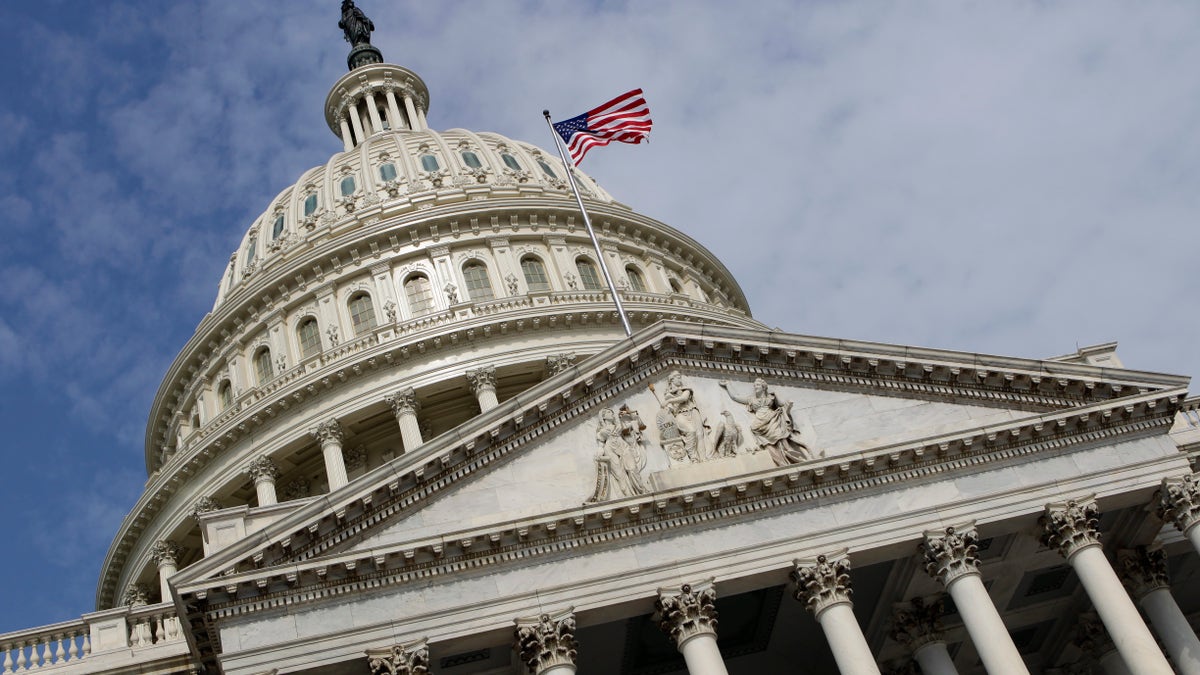
The Capitol Dome is seen on Capitol Hill in Washington July 28, 2011. (AP)
It’s been more than 40 years since the Watergate scandal broke, prompting Charles Colson’s resignation from the White House. Eventually Nixon’s “hatchet man” made a highly publicized conversion to Christianity and served time in a federal prison camp after pleading guilty to obstruction of justice.
After his release, he founded Prison Fellowship, now the nation’s largest outreach to prisoners, former prisoners, and their families. That unlikely tale of redemption came full circle today when a task force named in Colson's honor made recommendations to Congress to improve outcomes of the federal criminal justice system.
Colson would feel honored to have his name on the task force. It signals the ascendance of a notion he embodied: That despite their crimes, people behind bars have God-given worth, and once they have been held accountable via proportionate punishment, they are capable of being transformed and making significant contributions to the public good.
That idea, which now has credence across the political spectrum, has not always been accepted.
In a well-intentioned but shortsighted push for public safety, criminal justice rhetoric of the 1980s and ‘90s emphasized the need to lock up many more people, including those convicted of nonviolent offenses, for much longer periods of time.
The result has been an ever-more-costly federal prison system plagued by overcrowding and sub-par returns.
Not only does this approach undermine the humanity of those who are convicted of crimes and held in unrestorative conditions, but it also does a disservice to the victims and communities who are not helped to heal after old crimes or protected from new ones.
Realizing the shortcomings of this system, Congress created the Charles Colson Task Force on Federal Corrections, a bipartisan team of nine subject-matter experts, to examine challenges in the federal corrections system and recommend practical, data-driven policy solutions. In order to develop its recommendations, the task force, on which I was privileged to serve, met throughout 2015 to review relevant research and hear expert witness testimony.
We at Prison Fellowship are particularly encouraged by the task force’s recommendation that “the federal Bureau of Prisons should promote a culture of safety and rehabilitation.”
More constructive prison culture, with basic guarantees of personal safety, educational opportunities and policies that reward pro-social behavior, produce improved long-term outcomes.
They encourage individual transformation and ultimately protect public safety better than facilities that release individuals back into the community who have not been encouraged and enabled to change their former way of life.
We also welcome the task force’s recommendation that the federal criminal justice system enhance its accountability through increased transparency and better coordination across agencies.
We expect the prison system to protect public safety and uphold the dignity of those in its custody. These interests are best served when federal prison officials are encouraged to share and adopt evidence-based, restorative practices already being pioneered in some states.
Common-sense reform will help restore justice to our federal system. We thank members of Congress, particularly Rep. Goodlatte, R-Va., and Sen. Grassley, R-Iowa, for their leadership in the criminal justice bills currently working their way through the legislative branch. The most promising bills include the Senate’s Sentencing Reform and Corrections Act and the House’s Sentencing Reform Act, which propose more just applications of mandatory minimums and more constructive federal prison culture.
These efforts have a real chance of becoming law if Congress will seize this moment of bipartisan cooperation.
In the first minute of the State of the Union, President Obama opined that he and the Congress might “surprise the cynics” by working together on criminal justice reform.
After spending many years championing a cause unpopular to Democrats and Republicans alike, I believe Chuck Colson would celebrate the notion that criminal justice reform would unite political adversaries in our divided era.
Those who have broken the law still have great potential. While being held accountable for their actions, they can also be transformed and make significant contributions to society.
Charles Colson proved that when, after his own transformative prison experience, he founded an organization that has changed the way faith communities respond to prisoners and their families in America and around the world.
Such second chances must be earned, but, as the task force reflects in its findings and recommendations, there are effective and evidence-based means to promote both accountability and personal redemption.








































